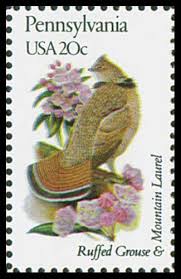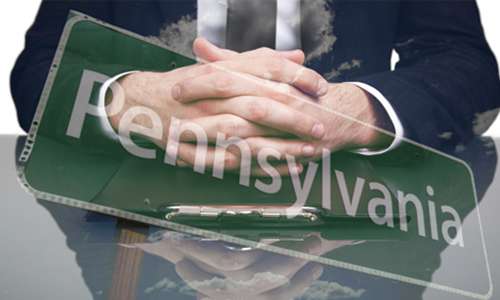Pennsylvania Governor Signs Gambling Bill, Legalizing Online Poker
Speaking at the Pennsylvania Press Club luncheon in Harrisburg Monday morning, Governor Tom Wolf announced that he has signed HB 271, officially legalizing online gambling in the Commonwealth of Pennsylvania. It has been a long time in coming, as lawmakers have struggled to fill gaps in the budget for a couple years. Gambling expansion has been seen as one way to generate revenue, but legislators just couldn’t agree on the details. Finally, though, the Senate passed the bill last Wednesday and the House followed up with an affirmative vote of its own on Thursday morning. Governor Wolf was expected to sign the bill into law and he came through yesterday.
 It will still be a while before Pennsylvanians can play online poker, as there is a 60-day waiting period from when the bill became law before anything can happen at all. But don’t expect to rev up PokerStars or 888 or WSOP.com or whatever there might be on New Year’s Eve, as the regulations still need to be promulgated, licensing applications need to be filed and reviewed, technology needs to be vetted, and so on and so forth. Online poker will become a reality in Pennsylvania, but players will need to be patient, as we might not see a launch until the latter half of next year, if we’re being realistic about things.
It will still be a while before Pennsylvanians can play online poker, as there is a 60-day waiting period from when the bill became law before anything can happen at all. But don’t expect to rev up PokerStars or 888 or WSOP.com or whatever there might be on New Year’s Eve, as the regulations still need to be promulgated, licensing applications need to be filed and reviewed, technology needs to be vetted, and so on and so forth. Online poker will become a reality in Pennsylvania, but players will need to be patient, as we might not see a launch until the latter half of next year, if we’re being realistic about things.
The new law splits licensing into three parts: online poker, online table games, and online slots. The state’s dozen licensed brick-and-mortar casinos will have first dibs on applying for licenses; each license will cost $4 million just for the application fee itself. If, within the first 90 days, a casino applies for all three licenses, the cost will be $10 million total.
“Qualified” operators from outside those twelve casinos can apply for licenses after 120 days if there are licenses left over (not coincidentally, twelve are available).
The law imposes a 14 percent tax on internet poker and internet table games plus another 2 percent local tax. This is very reasonable and is in line with what other states have on the books.
What ISN’T reasonable is the tax rate on online slots: 54 percent plus the 2 percent local tax. You read that correctly. Operators will have to fork over more than half of their gross gaming revenue from slots. Proponents of the astronomical tax rate will have you know that the land based casinos in Pennsylvania also have to pay a 54 percent tax on their slot revenue, so it is only fair for the online sites to do so, as well.
What they are either completely ignoring or just not understanding is that the brick-and-mortar casinos that currently exist in Pennsylvania have other ways of making money besides gambling. Visitors eat in their restaurants, shop in their stores, and stay in their hotel rooms, to give just three examples. Plus, there are other games in the casino that players will try and where the house has a greater advantage. I don’t know the exact financial figures off the top of my head, but even if casinos lost money on slots, they could probably be used as a loss leader to draw in customers for the other revenue streams.
It’s kind of, sort of like a movie theater. The theater is basically a glorified concession stand. It doesn’t make much of a profit off of each ticket, but where they really rake it in is from the snack sales. Sure, I’ll gladly pay $18 for two drinks and a popcorn. I mean, free refills! I’ll help you build another Cineplex via Milk Dud sales alone.
So while the opportunity is certainly there for online poker, it is widely feared that the insane tax rate on internet slots will kill that part of the industry before it even has a chance to start. Why would an operator pay a $4 million application fee and then pay so much in taxes that they can’t even pull a profit? The margins are very thin in New Jersey and the tax rate there is reasonable.
It is also possible that operators will balk at the $4 million application fee for online poker, so I wouldn’t expect twelve different online poker rooms to pop up next year. There is a good chance that only the big boys will apply for licenses, as they can most afford that initial hit.
The law also allows for interstate gaming compacts to be forged with other states so that Pennsylvania can increase its player pools, something that is particularly important for online poker. Delaware and Nevada have had such a compact for a while and New Jersey finally just got on board with them (though the player pools have not merged yet). It is expected that Pennsylvania will join the other three states at some point.



















COMMENTS